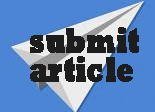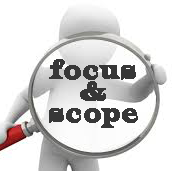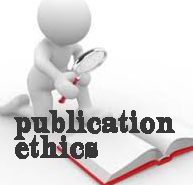Ethical standards for publication exist to ensure high-quality scientific publications, public trust in scientific findings, and that people receive credit for their work and ideas. In Journal of Bioscences, ethical standart including :
Authors
Plagiarism
Authors must not use the words, figures, or ideas of others without attribution. All sources must be cited at the point they are used, and reuse of wording must be limited and be attributed or quoted in the text.
Journal of Biosciences uses plagiarms check and our own software to detect submissions that overlap with published and submitted manuscripts. Editors can see our Similarity Check page for more information on how to interpret these reports.
Manuscripts that are found to have been plagiarized from a manuscript by other authors, whether published or unpublished, will be rejected and the authors may incur sanctions. Any published articles may need to be corrected or retracted.
Citation Manipulation
Authors whose submitted manuscripts are found to include citations whose primary purpose is to increase the number of citations to a given author’s work, or to articles published in a particular journal, may incur sanctions.
Editors and reviewers must not ask authors to include references merely to increase citations to their own or an associate’s work, to the journal, or to another journal they are associated with.
Conflicts of Interest
Conflicts of interest (COIs, also known as ‘competing interests’) occur when issues outside research could be reasonably perceived to affect the neutrality or objectivity of the work or its assessment. Potential conflicts of interest must be declared—whether or not they actually had an influence—to allow informed decisions. In most cases, this declaration will not stop work from being published nor will it always prevent someone from being involved in a review process.
Reviewer
Peer review assists the editor in making editorial decisions and through the editorial communications with the author may also assist the author in improving the paper. Peer review is an essential component of formal scholarly communication, and lies at the heart of the scientific method. In addition to the specific ethics-related duties described below, reviewers are asked generally to treat authors and their work as they would like to be treated themselves and to observe good reviewing etiquette.
Any selected referee who feels unqualified to review the research reported in a manuscript or knows that its prompt review will be impossible should notify the editor and decline to participate in the review process.
Reviews should be conducted objectively. Reviewers should be aware of any personal bias they may have and take this into account when reviewing a paper. Personal criticism of the author is inappropriate. Referees should express their views clearly with supporting arguments.
Reviewers should consult the Editor before agreeing to review a paper where they have potential conflicts of interest resulting from competitive, collaborative, or other relationships or connections with any of the authors, companies, or institutions connected to the papers.
If a reviewer suggests that an author includes citations to the reviewer’s (or their associates’) work, this must be for genuine scientific reasons and not with the intention of increasing the reviewer’s citation count or enhancing the visibility of their work (or that of their associates).
Editor
Publication Decisions
The editor of a learned journal is solely and independently responsible for deciding which of the articles submitted to the journal should be published, often working in conjunction with the relevant society (for society-owned or sponsored journals). The validation of the work in question and its importance to researchers and readers must always underwrite such decisions. The editor may be guided by the policies of the journal's editorial board and constrained by such legal requirements as shall then be in force regarding issues such as libel, copyright infringement and plagiarism. The editor may confer with other editors or reviewers (or society officers) in making these decisions.
Peer review
The editor shall ensure that the peer review process is fair, unbiased, and timely. Research articles must typically be reviewed by at least two external and independent reviewers, and where necessary the editor should seek additional opinions.
The editor shall select reviewers who have suitable expertise in the relevant field and shall follow best practice in avoiding the selection of fraudulent peer reviewers. The editor shall review all disclosures of potential conflicts of interest and suggestions for self-citation made by reviewers in order to determine whether there is any potential for bias.


.png)







